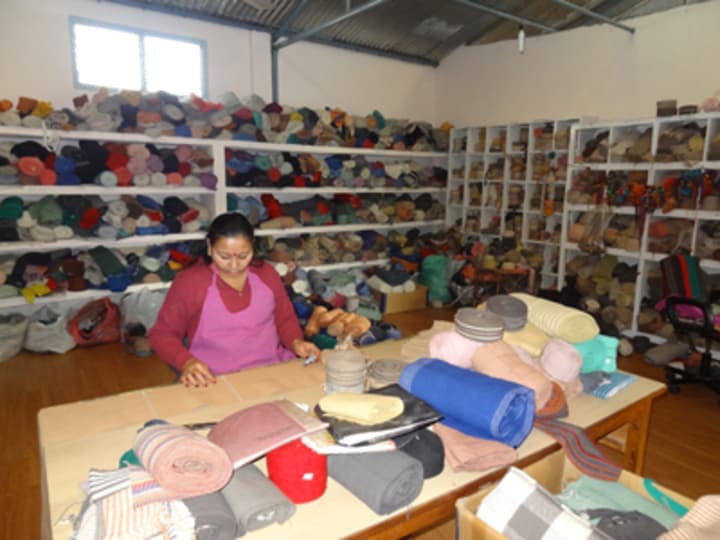
Dil Kumari Chand is well respected within her community in Dailekh, Nepal. A women’s activist, she is one of the founding members of the Women’s Empowerment Action Forum, a grassroots NGO and local partner of anti-poverty charity Voluntary Service Overseas. She currently works on reproductive health, raising awareness of uterine prolapse — a problem that blights women in this region of Nepal.
Yet life has not always been easy for her.
Like many women in Nepal, Dil Kumari faced the challenges of an early marriage, domestic abuse and a heavy workload around the house. She identifies the turning point in gaining respect in her community as when she became financially independent.
“When I got a job and earned my own money, I started to gain the respect of others around me and was able to educate my sons myself,” she says with a grin.
However, her story is still far from being the norm. This year, the 2013 Global Gender Gap Report ranked Nepal as the third-worst country in Asia-Pacific for gender disparities. The country was also one of the lowest-ranking countries in the world for “economic participation and opportunity” (116 out of 136 countries), reflecting serious gaps between men and women in terms of employment, livelihoods and advancement. Clearly, financial independence is leverage that many women in Nepal do not have.
Increasing livelihood opportunities for women in Nepal is an important way of giving women the freedom to participate in public life. The Women’s Skills Development Organization in Pokhara, western Nepal, is an ideal example. WSDO has trained more than 8,000 women to weave, cut and sew textiles. At present it employs 380 talented, skilled women, making products for export to Europe, the United States, Canada, Australia, Japan and South Korea. For these often marginalized women, it is an opportunity to earn enough income to be self-sufficient.
Established in 1975 with the support of the Nepalese government, WSDO aims to develop the textile skills of poor and illiterate Nepalese women. After losing funding with the change of government in 1989, some of the women took action. Together with three of her colleagues, Ramkali Khadka raised funds and started to produce commercially. Keeping true to the original goal of the organization, WSDO continues to provide women with free skills training, and even hires some of them as producers.
These women come from a variety of social, economic and ethnic backgrounds. Many are from rural villages and widowed, divorced, disabled or abused; some have been cast out from their homes and villages. Each woman has overcome her own obstacles to provide a better life for herself. From Sarita, who experienced discrimination in an inter-caste and abusive marriage, to Chumaya and Indrakala who both have physical disabilities, the stories of the challenges they have had to face and overcome are inspirational. The success of the project is testament to each and every one of the hard-working and dedicated women who have fought for their financial independence through WSDO.
The success stories mentioned here are representative of many across Nepal, from Dailekh to Pokhara. Through financial independence, women are liberated to make their own choices about their lives, and given the confidence and self-belief to succeed. As more livelihood opportunities become available to women in Nepal and worldwide, the gender gap can be narrowed and gender inequalities improved.
Join the Devex community and gain access to more in-depth analysis, breaking news and business advice — and a host of other services — on international development, humanitarian aid and global health.
